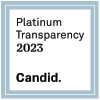Ecologists are calling on South Asian governments to ban veterinary use of the anti-inflammatory drug diclofenac. Without banning use of the drug in livestock likely to be eaten by vultures, mainly cattle and buffalo, three species of vulture in the Indian subcontinent are likely to become extinct in the near future.
New research, published in the Journal of Applied Ecology, shows that exposure of vulture populations to a surprisingly small proportion of livestock carcasses contaminated with the drug, less than 1%, is sufficient to cause the rapid declines in vulture populations observed in India, Pakistan and Nepal over the past ten years. Significantly, the study also showed that the proportion of dead vultures with symptoms of diclofenac poisoning in the wild is close to that expected if this was the sole cause of the declines.
Dr. Rhys Green of the Royal Society for the Protection of Birds (RSPB) and the University of Cambridge, lead author of the new paper said, "Our study indicates that diclofenac poisoning is the main cause, possibly the only cause, of these vulture declines, which are among the most rapid ever recorded for any wild bird. Time is running out if we are to save these species. Governments, drug companies, vets, livestock owners and conservationists should act together now to solve this problem."
The research builds upon a study by Dr. Lindsay Oaks and colleagues at The Peregrine Fund, published in Nature in January 2004, which showed that tissues of livestock treated with the standard veterinary dose of diclofenac shortly before death were lethal to captive vultures and that the majority of wild vultures found dead in Pakistan were contaminated with diclofenac and had the same symptoms as the poisoned birds in their experiments.
Vultures have considerable cultural and ecological importance which is being lost as their populations decline. The Parsi communities of India and Pakistan relied on vultures to consume the bodies of their dead, but vultures are now too rare for this to occur. In most parts of India, where cattle are not eaten by people, vultures played an important role by consuming the carcasses of dead livestock. Their virtual absence appears to have led to an increase in feral dog populations and has necessitated alternative methods of carcass disposal to reduce public health risks from disease spread and non-avian scavenger population increases.
The most recent vulture population surveys in India, carried out by the Bombay Natural History Society in 2003, show the number of oriental white-backed vultures (Gyps bengalensis) has fallen by more than 99% since the early 1990s and the number of long-billed vultures (Gyps indicus) has fallen by more than 97%. These declines continue at drastic rates: white-backed vulture populations declined by an average of 50% in each year between 2000 and 2003 in both India and Pakistan (The Peregrine Fund's studies) and long-billed vultures in India declined by 22% per year during the same period. The rare slender-billed vulture (Gyps tenuirostris) is also declining rapidly. All three species have been listed as Critically Endangered, the highest level of extinction risk, by IUCN - The World Conservation Union.
Diclofenac is widely used and distributed for livestock treatment in India and Pakistan, and is likely to take considerable time to remove it from the vultures' food supply. According to Dr. Asad Rahmani, Director of Bombay Natural History Society: "It will be difficult to remove diclofenac from the environment until drugs that are safe for vultures have been identified, so we urgently need captive breeding of vultures as a precaution until that has been achieved."
For more information, contact:
Erin Katzner
Director of Global Engagement
Main Phone:208-362-3716
Direct Phone:208-362-8277
Additional contact
Dr. Rick Watson, International Programs Director, The Peregrine Fund, USA
208/362-3716; rwatson@peregrinefund.org
Dr. Rhys Green, University of Cambridge, U.K.
tel: 01223 762840; reg29@hermes.cam.ac.uk





